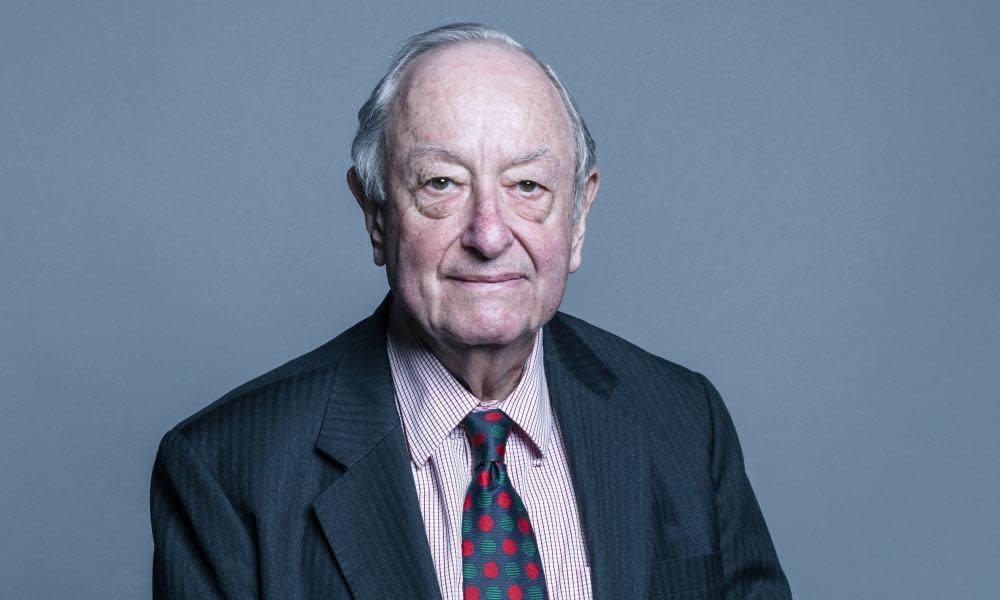Lib Dem peer Lord Lester suspended over sexual harassment

A Liberal Democrat peer has been suspended from the House of Lords for almost four years after a committee found he tried to pressure a woman into having sex with him by promising to make her a baroness, threatening repercussions if she refused.
Anthony Lester, a human rights barrister and former government adviser who has been a peer since 1993, will be suspended until June 2022, the privileges and conduct committee said.
If the Lords upholds the punishment, it would be the longest suspension handed to either a peer or an MP since the second world war.
A report from the committee, published on Monday, found Lord Lester, 82, told the unnamed complainant, who is described as an expert in her field: “If you sleep with me, I will make you a baroness within a year.”
The woman told the inquiry that Lester, who has been suspended from the Lib Dems and resigned the party whip earlier this year, said if she refused, “he would see to it I never had a seat in the House of Lords, and warned me there would be other repercussions for me”.
She also said after she turned him down, he stopped inviting her to relevant meetings. The behaviour amounted to “a grave abuse of power in the performance of his parliamentary duties”, the committee said.
Following an original investigation by Lucy Scott-Moncrieff, the upper house’s commissioner for standards, the subcommittee on lords’ conduct recommended Lester be expelled, the first time such action would have been taken.
However, Lester appealed, and while separate privileges and conduct committee upheld the conclusion, it opted for a punishment of suspension, as the rule allowing expulsion was introduced in 2015, after the offence, which took place 12 years ago.
The suspension was imposed due to sexual harassment and “corrupt inducements” by Lester, the committee said.
Scott-Moncrieff’s report into the claims, first made by the woman in November 2017, concluded that on the balance of probabilities they were credible.
The complainant said the harassment began after she attended a meeting at the Lords and had missed her evening train. Lester suggested she stay at his London home, and that his wife would be there.
When driving her to his home, she said “he kept repeatedly missing the gear stick with his hand and instead very firmly placed his hand on my right thigh”, behaviour she objected to.
After he made more suggestive remarks, she slept with her bedroom door barred with a chair, calling a friend to describe her worries. The next morning, when his wife had left, the woman said Lester put his arms round her waist and chased her around the kitchen.
It was at a later meeting at the Lords, she said, that Lester made the offer, the woman said, offering to make her a peer.
She told the inquiry: “He even spelled it out, putting my surname in, and asked me how that sounded. I responded immediately without hesitation by saying that if I were ever to become a member of the House of Lords, it had to be purely on merit.”
The report said the woman provided six witnesses, among them a judge, who were able to say she described the events happening immediately after they took place. One of them was the friend she phoned from Lester’s house.
The peer provided four of his own witnesses, among them his wife, who said they had never seen Lester acting inappropriately.
On Lester, the committee report said: “The tragic irony of this case is that for decades past the respondent has been one of the most widely known, effective and admired of those campaigning for racial and sexual equality in this country, a renowned supporter of human rights and freedoms across the board.”
In a statement released after the suspension was announced Lester maintained that the allegations were “completely untrue”, saying he had produced evidence that demonstrated this was the case.
He added: “There has to be a fair process for investigating sexual harassment claims in parliament. Parliament is supposed to be a bastion of the rule of law but has ignored calls to reform this procedure properly for 20 years. I hope to be judged by my work over decades for gender equality, race relations and free speech.”

 Yahoo News
Yahoo News 
